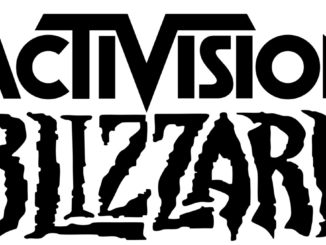
Miki Agrawal
The Art of Charm podcast welcomes various innovative guests on board to discuss the ways in which interpersonal connections impact their successes. Hosted by AJ and Johnny, the Art of Charm podcast turns “small talk” into “smart talk”. Recently, hosts AJ and Johnny welcomed social entrepreneur Miki Agrawal to the podcast to chat about societal disruption, breaking taboos, and changing the world!
Below, check out parts of their conversation:
Society Doesn’t Want To Change
Miki Agrawal: Society wants to maintain its form. Society does not want to change. When there’s anyone who’s trying to disrupt that in the corners and trying to pull it forward, they’re going to call you names. Tell you you’re crazy. Tell you that you’re a hoax that you’re like black magic that they will say anything and do anything so they can maintain its form. That’s the big challenge and that’s why the disruptors deal with a lot of name-calling and a lot of things to move society forward in a certain direction. Because of this tradition of the way things have been done for so long.
AJ: Now, have you felt in creating because many of your companies are disruptive in this way that our taboo, that our edgy has social media helped or hurt these businesses grow because I feel like now with the cancel culture we were laughing about this little earlier, disruption and pushing on those taboos with social media get taken down very quickly.
Miki Agrawal On The Tall Poppy Syndrome
Miki Agrawal: I mean, it is a very very interesting place today to be. I do think that social media has been by and large a positive for my companies to be perfectly honest. There have been moments of like, “WTF in the whole thing”, but I think that comes with building businesses. I think that comes with having any level of success. There is such thing as a tall poppy syndrome, where people want to take you down and cut you down. That was something that was very unexpected for me. Then, I was just like Michelle Obama, who says, “when they go low you go high.” You stay high and you just have to, you guys are the Art of Charm. Like, there’s going to be those moments where you’re like, “I’m in a state of art of charm moments, right?”
Johnny: Yeah, and it’s certainly difficult. We’ve certainly have had our own battles. I would imagine coming at products where you are disrupting what has always been there and you’re asking these questions and you’re presenting a new way of doing things. That exchange of arguing online is what I would see as a positive, right. Because it’s bringing awareness. People want to jump into the conversation. If you start presenting an argument that is just based on facts and there’s a lot of people are going to be like well, I can’t really argue.
The Tushy Example
Miki Agrawal: 100%. I mean, I’ll give you some examples with Tushy for example. People are like, “Wouldn’t poop just spray everywhere” I don’t want to poop just spray! Sorry, no thanks.” And we’re like, “No, poop doesn’t spray everywhere. It literally it’s a precise stream of water that pulls the water down.” And it’s like, “Oh, is it dirty toilet bowl water or tank water? That’s disgusting. I would never use that.” No. It plugs from the wall the same water you brush your teeth with. Next question. You know, so for us, it’s like we do get a lot of naysayers in the beginning and what’s interesting what’s the most interesting is the biggest naysayers the biggest shit talkers become the big champions.
AJ: Once they experience it.
Miki Agrawal: It’s like, are they talking shit real loud or talking like positive, and then we finally were like alright stop yelling like try this part will give you a big discount.
Johnny: Yeah.
Miki Agrawal: Just try it and then they’re like oh my god I was so wrong. What was it? So, it’s like the loud minority on both sides that can move things around.
AJ: Yeah, most of us are in the silent majority.
Miki Agrawal: Yeah.
AJ: Now obviously with these companies and these ideas and pushing against the status quo. There’s a lot of rejection that comes along with it.
Miki Agrawal: Yes.
AJ: And I think we all struggle with rejection whether it’s posting stuff online or in our social lives or dating lives and how have you built up a tolerance for rejection to be able to push the boundaries?
Miki Agrawal On Pushing Boundaries
Miki Agrawal: I always think about rejection as, like the first, it’s the first offense. It’s the first no. It’s the first, it’s like alright cool then this way of explaining this to you didn’t quite work. Let me try a different way. Okay, you care about the planet. Okay, you don’t necessarily care about your health and hygiene which we all should. But okay, you care about the plant. Do you know the 15 million trees that cut down every single year to make toilet paper? Do you know that there are billions of gallons of water and bleach used to make toilet paper? Versus people like what about water? Why have to save water? You’re using one pint of water versus what it takes to make a single roll of toilet paper requires 37 gallons of water to make one roll of toilet paper. And the average American uses 57 sheets of toilet paper per day.
So, net-net you’re actually saving 55 gallons of water per week by using fresh water to properly clean you. I mean so like we have like, we just have the truth to what people’s big like resistances are and I generally love it. Because then we can like educate them and they can then take that education and go and school other people.
ButtFest Comes to NYC
AJ: So, when we were hanging out in New York, you were getting ready for I believe it was butt fest.
Miki Agrawal: Butt Con!
AJ: Butt con. There we go. And it was exactly this. Having some fun with the whole thing, right? Why are butts such taboo in this culture?
Miki Agrawal: We all have one. We all poop. We all bend down. We all like need it.
AJ: It’s universal.
Miki Agrawal: It’s a universal thing, and yet, society made this part sexual and taboo. It’s all of a sudden something that we have to run away from. So, we held Butt Con, the first Butt Con in America where this year we’re having our first Butt Conduce 2020. You guys are both invited.
AJ: Perfect.
Miki Agrawal: And it’s everything from butt lift doctors, anal reconstruction surgeries like poop doctors for gut bacteria. We had the anal pornstar Asa Akira there. We had like anal, I mean butt facialist there, who does butt facials. Like sometimes people have pimples on their butt so you can do butt facials. So, I mean there’s a lot that people don’t even like that I learned at Butt Con myself having thrown it. I was like, wait we had a twerking competition. We had a twerk off, I mean like…
AJ: We have to hear about the twerking competition.
Miki Agrawal: Oh yeah. It was wild. And we had the cake sitter with this woman named Lindsey Die who’s like this cake sitter who sits who twerks over cakes and sits in the cakes and then like smears the cake all over her butt. She this what she does for a living as like a show.
AJ: You can mention that.
Miki Agrawal: Yeah, and so it’s just interesting what people what’s out there and we put it all together and it was an incredible event. People when we sold out of tickets because people are interested in the subject and that’s my biggest thesis in writing. The reason why I wrote Disrupt Her. The thesis is that we think that people don’t want to have these conversations that people don’t want to talk taboos. And yeah, out loud people don’t want to talk about them. but guess what? The minute someone gets a bidet, it gets someone gets a Tushy and all of a sudden, someone goes they’re having a dinner party and their friends see them, it becomes a topic of conversation for the entire dinner. It’s about poop and their butts because all of a sudden, it’s just permission and everyone needs permission.
I’m sure you guys know all about that. It’s like, that’s the thing. It’s like the minute we talk about periods. Everyone’s like, oh my God, I want to talk about poop. Oh my God. Organic, gluten-free. Whatever it is that like the business that I’ve started that people have been sensitive to talk about and out loud. The minute we have these conversations like oh my God like why is it tacky to talk about money out loud? Why can’t I change careers if I’m not really interested in doing the same thing? Even if I became a medical doctor. One of my friends is a doctor and went through, he’s like made, his family is like the proudest family ever for. Because they come from Peru and he’s the first college graduate in the family the first doctor in the family and there’s a lot of pressure. But he’s not necessarily in love with the profession anymore and it’s like life is short. Like you can go and like do other things. Like while you’re still a doctor you can get more education and do whatever else you want to do.
Like it’s not just because you follow this one career path you have to stick to it for the rest of your life. So, there are so many things that we feel kind of stuck by that are just made up.













Leave a Reply
Be the First to Comment!
You must be logged in to post a comment.
You must be logged in to post a comment.